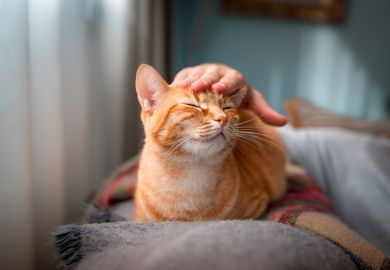Criticising the National Union of Students has become something of a national sport in recent months.
But this week’s election of Malia Bouattia as its new president seemed to take things to a new level – with the student movement now facing claims it is led by someone who has espoused anti-Semitic views, something she vehemently denies.
A much more familiar criticism of the NUS, however, is that it is the embodiment of over-the-top political correctness.
So does the NUS and its hypersensitivity to matters of race, gender and various forms of discrimination deserve the ridicule that is poured on it so readily?
The diversity agenda was certainly to the fore when I attended the NUS annual conference in Brighton this week.
On arrival at the registration desk at the Brighton Centre, I was able to choose from a range of stickers that would indicate to delegates if I’d prefer to be addressed along the lines of “he/him/his” or perhaps “they/them/theirs”. Later in the day, delegates elected a full-time sabbatical officer to deal with trans issues – a major financial commitment for a union that can’t afford a paid post dedicated to postgraduate issues.
When Ms Bouattia was elected as president – the union's first female black Muslim leader – her supporters were chided by the panel chair for clapping and cheering as this may cause distress to other delegates and trigger a trauma episode.
Instead, delegates were asked by a sincere delegate not to whoop or holler, or clap at all, but use “jazz hands” to show appreciation (people were asked to wiggle their fingers) as the noise created was “ableist” and had indeed caused the delegate in question to have a panic attack on previous occasions.
For many, such rules are part of the union’s overbearing political correctness, as seen with “safe spaces”, in which overprotected students are mollycoddled and insulated from views not adhering to their own agendas.
“The NUS’ Byzantine regime of speech codes, blacklists and disciplinary policies is fuelled by a view of students as either easily upset babies or goose-steppers in-waiting,” says Tom Slater, deputy editor of the online magazine Spiked, one of the NUS’ harshest critics.
But Sorana Vieru, vice-president (higher education), makes no apology for asking students to use jazz hands instead of clapping.
“The NUS has been at the front of the liberation agenda, fighting for women’s rights, LGBT rights – we’ve been ahead of our time,” she told me.
“The right-wing press like to cherry-pick this things to mock us, but some delegates with disabilities do find very strong clapping causes them harm."
For Vieru, such calls for restraint are far better than the braying and hollering antics seen in Parliament, which causes many to steer clear of politics altogether.
“The last thing we want is to have members not feeling comfortable participating in our debates,” she said.
“You can’t prevent the trolls making fun of it on Twitter, but our job is make everyone feel able to participate."




